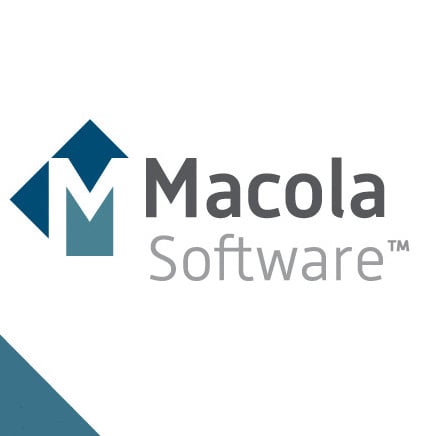
NetSuite rates well as a cloud ERP for manufacturers with foundational software that excels at managing planning, forecasting, engineering, supply chain, warranty and repairs, and order management. Where best-of-breed manufacturing ERPs can falter by focusing on excessive specialization, NetSuite is a comprehensive ERP software solution for the entire organization.
Even so, the variances in manufacturing processes from a plant or a mill to a factory or an assembly line demand an individualized approach to ERP selection for manufacturers. To evaluate NetSuite for manufacturing, we will first examine the different types of manufacturers and their processes.
What Kind of Manufacturer Are You?
If your company is a discrete manufacturer creating specific and distinct products, your requirements could be vastly different than those of a process manufacturer that produces food items, chemicals, or plastics.
A mixed-mode manufacturer may have similar needs to discrete and process manufacturers, and yet this would also make their requirements completely unique when compared to each other. Mixed-mode manufacturers need agile solutions alongside robust data management, allowing for actionable insights and the ability to effectively jump between production modes.
Engineered to Order (ETO) can be dissimilar to other types of manufacturing in that it involves Computer Aided Design (CAD), Work Orders, Bills of Materials (BOM), Manufacturing Instructions, and Materials Sourcing and Purchasing — all before fabrication can begin. ETO manufacturers face unique challenges in managing cross-departmental communication to ensure all specialized aspects of the product are properly managed. From the design team to production to sales, everyone must be in lockstep to deliver client value.
Then there are the companies that specialize in contract manufacturing, creating products based on design specifications provided by another organization. This is yet another type of manufacturing with its own unique ERP requirements.
To evaluate NetSuite for your manufacturing company, ask yourself the following questions:
- Who are you as a manufacturer?
- What are your key requirements as a manufacturer?
- What processes are you trying to track?
- What pain points are you currently experiencing?
Once you have answered these questions, you can begin to evaluate NetSuite manufacturing modules and decide if there is a good fit for your organization. It is vital to begin by determining what kind of manufacturer you are. Then you can take steps towards documenting your requirements to drive scripted demonstrations and determine if NetSuite could meet your manufacturing needs.
Financial Data
As is true with any accounting software implementation, the integrity of the data going into the new software will play a crucial role in reaching a successful go live. NetSuite features excellent core financials, but duplicate entries, missing information, and other data hygiene issues won’t just disappear in the new system. Cleansing your data before moving to your new manufacturing ERP will support a smooth transition. Nevertheless, NetSuite provides a strong financial suite that guarantees anyone could find “Suite Success” with NetSuite.
CAD and PLM Systems Integrations
In-house design and engineering firms utilizing CAD software and Product Lifecycle Management (PLM) systems can benefit from custom third-party solutions that integrate well with NetSuite. By eliminating errors from manual data entry, these integrations ensure product information remains identical to work order documentation for enhanced quality assurance and create a single source of truth in a centralized system.
NetSuite understands the importance of such modules and has developed a strong ecosystem of applications on the SuiteApp platform or through external partnerships and connectors. Solutions like PLM Integrations for NetSuite, powered by Nexus, and CADLink, built specifically to integrate CAD BOM to NetSuite, are just a couple examples of how NetSuite is meeting the deeper needs of manufacturers.
When evaluating NetSuite as a manufacturer with PLM and CAD needs, it is important to consider NetSuite does not offer a native PLM or CAD solution. This fact should not be a disqualifier during an ERP selection. However, a manufacturer with complex CAD or PLM requirements, or a team who will interact with both systems could be heavily swayed by vastly different User-Interfaces or Experiences during an ERP demo.
Documents: Work Orders, BOMs, Manufacturing Instructions
Mapping your organization’s entire manufacturing process will help equip your NetSuite configuration to fit your systems, procedures, and equipment. This in turn will streamline the creation of work orders, BOMs, Product Requirements Documents, Manufacturing Build Packages, and other vital manufacturing documentation. Work Orders in NetSuite work in tandem with BOMs to deliver products efficiently and help connect all aspects of the process.
Manufacturing Execution
Another important factor is your Manufacturing Execution System (MES) requirements. This could include tracking material, labor, and overhead going into a work order, along with orders going to the shop, and other crucial processes. MES capabilities enable manufacturers with a fully transparent view of production.
NetSuite does offer native MES capabilities to customers utilizing its Advanced Manufacturing module. As a cloud-based MES, users have a real-time view of the shopfloor from anywhere. NetSuite MES users also benefit from all capabilities traditionally offered within an MES solution. NetSuite Advanced Manufacturing is a great module, but an important consideration is just that: it is a module. NetSuite ERP is not innately built for manufacturing. Once again, this is not a disqualifier for NetSuite in any potential ERP selection but should still be considered by any manufacturers evaluating the product.
Quality Control
Maintaining standards is another critical aspect of a manufacturing business. There are quality control functions that you must consider when deciding to implement NetSuite. Which parts of quality control will need to be tracked? Where will the reports go and who will be ensuring the products meet the standards set by your company? A lot goes into configuring manufacturing software for quality control standards, regardless of the application or platform. It is important to understand how you would like to manage quality control in your application when evaluating NetSuite for manufacturing.
NetSuite offers NetSuite Quality Management as a SuiteApp to “formalize and automate policies, standards, and practices” (netsuite.com). NetSuite Quality Management enables customers to effectively configure their system to their unique needs, from the procedures for testing throughout the production process to the standards for evaluating results. Having access to this solution, even if it is not part of the core ERP, can be essential to automating the quality control process.
Regulatory Compliance
Meeting regulatory requirements is a critical part of the daily, weekly, and monthly processes of most manufacturers and NetSuite offers strong, audit-ready solutions for regulatory compliance.
Nearly all manufacturers have different regulations to be met, so you must ask yourself which regulatory requirements you are tracking in your current system and how they will be migrated to the new system. NetSuite empowers its clients to ensure compliance through NetSuite Governance, Risk, and Compliance capabilities. With NetSuite GRC, customers have access to internal controls and automation for greater efficiency and oversight. By reducing manual intervention, customers can preserve financial integrity. Additionally, tools for oversight and change tracking also help maintain overall compliance across the entire organization.
Inventory and Warehouse Management
Raw material inventory, finished goods inventory, and warehouse management cannot be overlooked in your manufacturing software. Examine your company’s materials and products against what are you hoping to see from NetSuite: Will you try to simplify your manufacturing processes? Do you expect business to increase exponentially? Do you want to reduce expenditures? You will want to see how NetSuite manages these processes during your demonstration, and make sure to ask questions and provide a demo script when necessary.
Inventory and warehouse management capabilities are native to NetSuite with the NetSuite Inventory Management and NetSuite Warehouse Management modules. By connecting each of these solutions to the core NetSuite ERP, manufacturers can gain unique insights across the entire enterprise of data, not just the siloed information available in each individual system.
If your company has more advanced inventory management or warehouse management requirements and are considering NetSuite, make sure to evaluate all options available in the ecosystem before deciding whether to implement the native solutions. Things can get complicated when it comes to businesses with thousands of SKUs moving at high speeds or needing conversion between multiple currencies. If this is the case, your business may need a more advanced Warehouse Management solution. There are more robust third-party products on NetSuite’s marketplace with pre-built integrations, such as RF-Smart.
Summary
NetSuite is well-suited for a wide range of manufacturing use cases. Beyond shop-floor-specific functionality for the details of work orders and CAD drawings, it has the flexibility to handle financials, order management, marketing, supply chain management, planning, and forecasting — for the entire organization.
ERP Advisors Group has extensive experience with NetSuite software implementations for manufacturing companies, and we can provide you with industry specific guidance. Contact us today for a free consultation with an experienced member of our team.





